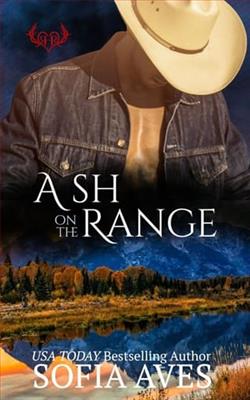Page 69 of The Quest for Excalibur
Cei gave him a doubtful look. “You’re sure? This is an ancient holy place.” He jerked his head at the men filing in behind us. “Not all of them will be happy with spending a night here.”
With a shrug of his shoulders, Arthur dismissed their fears. “Don’t the priests teach us there are no such things as spirits of past men? We’re Christians now, with nothing to fear from ghosts, only our own imaginations. We make camp here.”
With a resigned frown, Cei twisted in his saddle. “Dismount. We’re making camp here.”
A few of the nearest men exchanged nervous glances, but they were accustomed to obey, and everyone swung down from their saddles with evident relief. We must have ridden forty miles or more that day, and legs and bottoms had suffered. No one raised any objection.
“They don’t like stone circles or tombs, nor even barrows.” Merlin kept his voice low. “They think evil spirits dwell in them. The unquiet spirits of the people who came before us. Barrow wights and such.” He grimaced. “They say human sacrifices were made here. Who knows?”
I had to admit, I wasn’t keen to spend the night inside an ancient stone circle myself. The nearest stones loomed over us as we unsaddled our horses, sinister and dark, their silence threatening now the sun had vanished.
But I didn’t intend to let Merlin think me a coward, or worse, as superstitious as the men. “Rubbish,” I said, with more determination than I felt. “Arthur’s right. This is a good place to make camp.”
His wry smile told me he hadn’t been fooled. Could he even be a little afraid himself?
Camp was set up quickly, horse lines organized, and the horses fed on the oats we’d brought with us. We’d watered them at the stream outside the western bank, and they’d have to do without more until the morning.
Their horses cared for, the men hurried off to search for fallen wood under the trees to the east, and several campfires soon blazed. Those men of the first watch took bread and cheese to positions at intervals along the bank, several of them carrying skins of cider.
Everyone else crowded around the fires, probably for a reason other than heat, and the smell of our dried meat bubbling with onions and barley rose into the night sky, making my mouth water. The men fell naturally into small groups, keeping close together and casting the odd furtive glance over their shoulders into the deep darkness beyond the reach of the firelight.
I couldn’t help it. I did the same.
The evening darkened with startling rapidity, plunging the stones into black night for a while until the moon rose over the treetops to the northeast. I sat beside Arthur, leaning against my saddle and with my saddle blanket between my bottom and the cold ground, mopping up my thick stew with a hunk of not-so-fresh bread. I didn’t care. When you’re hungry almost anything tastes good, and I’d soaked the bread in the gravy to make it more palatable.
In the moonlight the enormous banks rose up around us, darker than the blue-black sky, the silhouettes of the nearest lookouts just visible. The thought of the stones, invisible behind my back, and planted there thousands of years before this day, sent a shiver down my spine. Arthur put his arm around me and drew me close. I rested my tired head on his shoulder.
“Play us a merry tune,” Cei called to Gwalchmei. “Chase away the unquiet shades for us.”
“There are none,” Arthur growled, but not angrily, and not sounding totally convinced.
A chorus of agreement for a song echoed amongst the men, all too obviously nervous about disturbing whatever lay sleeping within these stones.
Arthur bent his head and whispered in my ear. “I don’t doubt that if there are indeed any shades here, a merry tune will draw them, poor miserable creatures that they might be.”
Perhaps.
Gwalchmei, slight and brown skinned, took his lyre from his saddlebags and strummed his fingers across the strings, adjusting the tuning. Silence fell over the waiting men, everyone’s attention caught.
“Sing the one about the innkeeper and the whore,” Cei called, and ribald shouts of encouragement filled the night air. Perhaps the dead were listening from amongst the stones. Perhaps a bawdy tune would please them.
Gwalchmei looked up from his strings, a wicked grin on his face. “Aye, I was thinking that’d be a fine one for tonight. You all know the chorus.”
And so we sat there in the semi-darkness as he sang the story of a very naughty whore who tried to set up shop in an innkeeper’s stables and the variety of customers she serviced, and then deprived of all their money. A lot of very explicit gestures accompanied the chorus which everyone joined in with, Arthur singing along as loudly as the next man.
Hopefully the shades were satisfied. I snuggled close, and let my eyes close.
Chapter Thirty-Four
The next daywe reached the long-abandoned hillfort that would one day be called Liddington Castle, where it sat just above the scarp face of the downs, looking west toward the Cotswolds. The rich lowlands of Britain lay spread below the hills, the breadbasket of the island, where oats, barley and wheat grew side-by-side in small, square fields.
Flocks of sheep, tended by wary shepherds, grazed the steep slopes below the old fort, and cattle browsed the lower-lying wetlands, happy to wade hock deep to reach the choicest morsels of grass. Out of sight, some eighteen miles off, lay the tumbled ruins of Caer Ceri– modern Cirencester, and the road north to Viroconium.
Here, on the long ridge of the hills, a warm breeze blew in from across the plain, and the few hawthorn trees that had managed to take root bent eastwards out of long habit, sculpted in apparent supplication by the fiercer winds of winters past.
Only the deep ditch and towering outer bank remained of the fort. No palisading, no stonework to revet a wall-walk, no great hall and no clustered houses or barns. A few stray sheep bolted away from us– wisely– bleating plaintively at the disturbance.
We rode in through the only gateway, although calling it that was to flatter it. Just a gap in the grassy banks gave onto a wide area of about seven or eight acres– enough to feed our horses for a day or two, at least. We’d have to take them to the village sheltering at the hill’s foot every day to water them and bring back water for ourselves, though. The villagers weren’t going to like that much. Armies don’t make for good neighbors.















